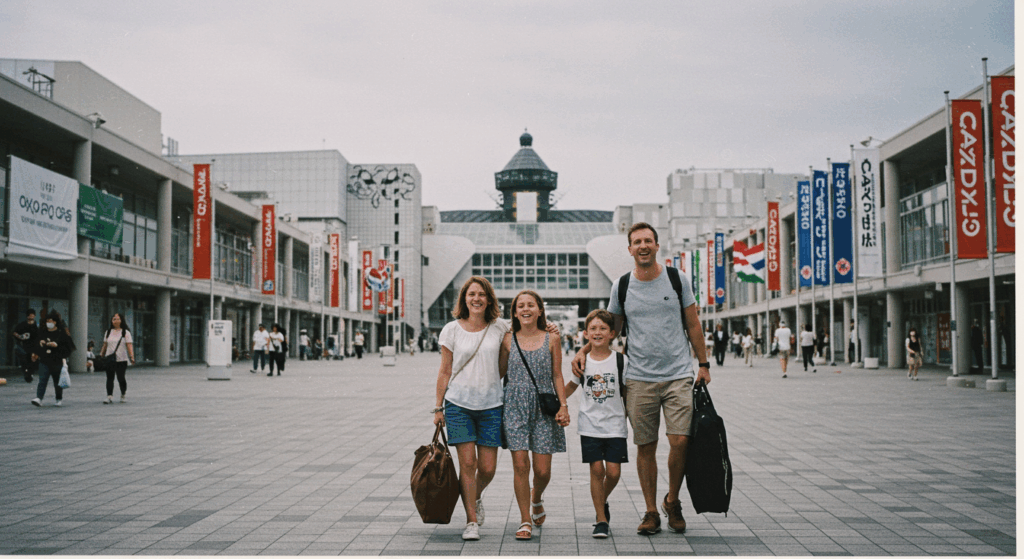Expo 2025 Osaka Travel: New Survey Highlights Typical Tour Packages and Cost Examples

Tokyo, September 2025 — Song LLC today announced the results of a new consumer survey focusing on U.S. travelers planning trips to Japan during the Expo 2025 Osaka. The research highlights typical package preferences, detailed cost structures, and practical strategies for saving money when planning an Expo visit.
Survey Overview
| Survey Organizer | Song LLC |
|---|---|
| Target Respondents | U.S. residents in their 20s–40s who visited Japan (including Kansai) in the past 3 years or plan to visit during Expo 2025 |
| Sample Size | n=450 |
| Method | Online survey |
| Period | September 1–10, 2025 |
| Currency | USD (conversion: 1 USD = 150 JPY) |
| Model Households | Solo Traveler: 34 years old, based in New York (JFK), income $90,000, 6 nights/7 days, economy flight, mid-range hotels Family Traveler: Couple in their 30s with two kids (7 & 10), based near Los Angeles (LAX), household income $150,000, 8 nights/9 days, economy flights with connections, family-oriented hotels |
Popular Package Types for Expo 2025
The survey revealed three major package categories: “Air + Hotel (Osaka Stay)”, “Tokyo + Osaka (Shinkansen)”, and “Kansai Multi-City (Kyoto/Nara/Kobe)”. Among solo travelers, **42%** opted for Air + Hotel packages, while families showed higher interest (**37%**) in multi-city Kansai stays that allow children to explore historical sites. The median budget for solos was around $2,450 (¥367,500), whereas family budgets averaged $6,800 (¥1,020,000).
- “I chose Osaka-only because I wanted to focus on Expo events and nightlife around Namba.” — J.S., 29, Software Engineer
- “Our family wanted Kyoto and Nara, so we booked a Kansai Multi-City package.” — M.L., 35, Teacher
- “Shinkansen between Tokyo and Osaka gave me the best of both worlds.” — T.K., 31, Marketing Specialist
Cost Examples & Breakdown
Typical expenses for Expo travelers were broken down into airfare, accommodation, domestic transport, tickets, experiences, food, and shopping. For example, economy round-trip fares averaged $1,250 (¥187,500) from JFK and $980 (¥147,000) from LAX. Hotels near Umeda averaged $160/night, while Namba properties averaged $140/night and Bay Area hotels near ATC/Suminoe were slightly cheaper at $120/night.
Additional average costs included: JR passes and IC cards ($220), Expo tickets ($55/adult), meals ($45/day solo, $120/day family), and shopping allowances (median $400 for souvenirs and electronics).
- “Staying in Namba cut hotel costs and made evening dining easier.” — A.R., 33, Consultant
- “Bay Area hotels were budget-friendly but required longer commutes.” — C.D., 38, Graphic Designer
- “Flying from LAX saved us nearly $1,000 compared to East Coast flights.” — B.W., 36, Financial Analyst
How to Save for Expo Trips
Survey respondents shared practical tips on lowering trip costs. Booking flights **60–90 days** in advance typically saved **12–18%** compared to last-minute reservations. Traveling in shoulder seasons (late May–June, early September–October) lowered airfare by up to **20%**. Using Kansai Thru Passes and IC cards effectively reduced domestic transit costs by **15%**, while families who booked 5+ night stays benefited from hotel chain discounts averaging **10–12%**.
- “Booking in June instead of July saved me about $400 on flights.” — D.N., 30, Nurse
- “The Kansai Thru Pass covered Kyoto and Nara, making day trips stress-free.” — H.P., 28, Engineer
- “Using credit card points for two nights in Osaka saved our family almost $500.” — L.G., 34, IT Manager
Conclusion
The findings show that U.S. travelers heading to Expo 2025 Osaka are balancing immersive cultural experiences with careful budgeting. Whether opting for Osaka-only convenience or multi-city exploration, strategies like early booking, smart transport passes, and family discounts can reduce costs by **15–20%**, making the Expo an accessible global event.